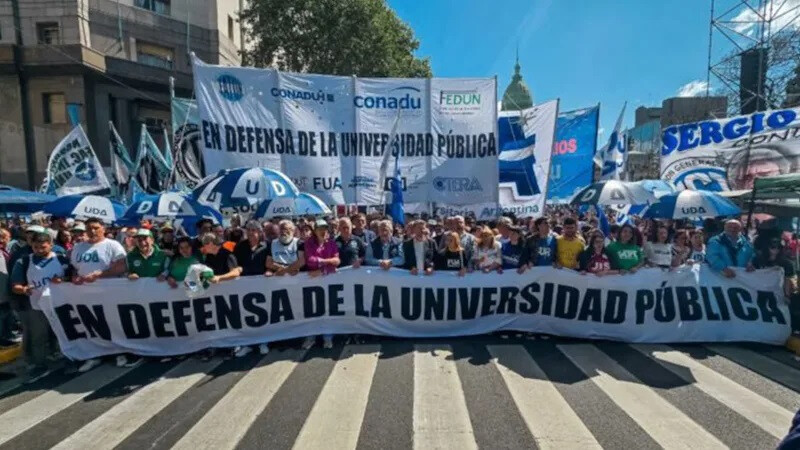
Buenos Aires, Argentina – Argentina's university system is facing a critical juncture as faculty and staff across the country commenced a 48-hour general strike, protesting severe economic hardship and demanding urgent government action. The strike, organized by prominent labor unions such as the National University Teachers' Federation (Conadu), the National University Workers' Union Front (FSUN), and the Buenos Aires University Teachers' Union (Feduba), underscores the deepening financial crisis plaguing the nation's higher education institutions.
The universities' plight has been exacerbated by Argentina's spiraling inflation and the government's austerity measures. Since President Javier Milei's inauguration, the gap between soaring living costs and stagnant wages has widened dramatically, pushing university employees to the brink.
The unions' primary demands include:
A 40% wage increase to restore purchasing power lost due to inflation since December 2023.
A substantial increase in the 2024 university budget, which has been slashed by 40% compared to the previous year.
According to Conadu, 65-70% of national university workers are now living below the poverty line. Feduba reports that university employees have suffered a 71% loss in real income since President Milei took office. The government's proposed wage increases for January and February 2024, at 1.5% and 1.2% respectively, fell far short of the corresponding inflation rates of 2.2% and 2.4%.
Data from the Argentine Education Observatory reveals that the 2024 education budget has been reduced by 40% compared to 2023.
Union leaders emphasize that the strike is not solely about wage demands, but also a defense of Argentine democracy, institutional stability, and the right to protest. They assert that the majority of university employees are struggling to survive, and the situation is dire.
The strike has placed significant pressure on the government to address the universities' financial crisis. The nation now awaits the government's response and its proposed solutions to avert a potential collapse of the higher education system.
[Copyright (c) Global Economic Times. All Rights Reserved.]




























